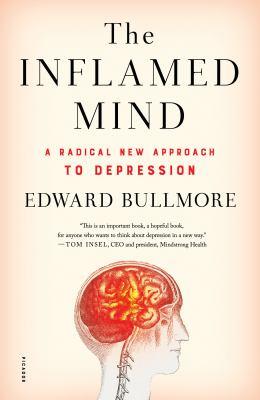
The inflamed mind : a radical new approach to depression
In this game-changing book, University of Cambridge Professor of Psychiatry Edward Bullmore reveals the breakthrough new science on the link between depression and inflammation of the body and brain. He explains how and why we now know that mental disorders can have their root cause in the immune system, and outlines a future revolution in which treatments could be specifically targeted to break the vicious cycle of stress, inflammation and depression. The Inflamed Mind goes far beyond the clinic and the lab, representing a whole new way of looking at how mind, brain and body all work together in a sometimes misguided effort to help us survive in a hostile world. It offers insights into the story of Western medicine, how we have got it wrong as well as right in the past, and how we could start getting to grips with depression and other mental disorders much more effectively in the future
Available Copies by Location
| Location | |
|---|---|
| Victoria | Available |
Browse Related Items
- ISBN: 9781250318145
- Physical Description 240 pages : illustrations ; 24 cm
- Edition First U.S. edition.
- Publisher [Place of publication not identified] : [publisher not identified], 2019.
Content descriptions
| Bibliography, etc. Note: | Includes bibliographical references and index. |
| Formatted Contents Note: | Daring to think differently -- Root canal blues -- Neuro-immunology and immuno-psychiatry what does an inflamed mind look like? -- The revolution will not be televised -- The workings of the immune system -- Inflammation and infection -- Location, location, location -- Communication: the medium is the message -- Rapid rebuttal and learning -- Auto-immunity: the flip side -- Hiding in plain sight -- It's depressing being ill -- The cogito, God, and the machine -- A long shadow -- Mrs P is not alone -- A bona fide blockbuster -- The Cartesian blind spot -- Melancholia after Descartes -- From black bile to MDD -- A cross to bear -- Super-shrink -- Dancing in the sanatorium -- The golden age -- Farcical serotonin -- Bereft of biomarkers -- How? -- Extraordinary claims demand extraordinary evidence -- A stubborn fact -- Causes must come first -- The Berlin wall in the brain -- Inflamed brains -- Why? -- What could make you inflamed (and depressed)? -- Flaming stressed -- Causal chains and cycles -- Ultimately, the answer must always be Darwin -- A savannah survival story -- So what? -- Medical apartheid -- Could it be different already? -- Market failure -- Beyond blockbusters: better but not bigger than Prozac -- Alzheimer's disease and the yin and yang of microglia -- Schizophrenia and auto-intoxication. |
Additional Information

Summary
The Inflamed Mind : A Radical New Approach to Depression
As seen on "CBS This Morning" Worldwide, depression will be the single biggest cause of disability in the next twenty years. But treatment for it has not changed much in the last three decades. In the world of psychiatry, time has apparently stood still...until now with Edward Bullmore's The Inflamed Mind: A Radical New Approach to Depression . A Sunday Times (London) Top Ten Bestseller In this game-changing book, University of Cambridge professor of psychiatry Edward Bullmore reveals the breakthrough new science on the link between depression and inflammation of the body and brain. He explains how and why we now know that mental disorders can have their root cause in the immune system, and outlines a future revolution in which treatments could be specifically targeted to break the vicious cycles of stress, inflammation, and depression. The Inflamed Mind goes far beyond the clinic and the lab, representing a whole new way of looking at how mind, brain, and body all work together in a sometimes misguided effort to help us survive in a hostile world. It offers insights into how we could start getting to grips with depression and other mental disorders much more effectively in the future.


